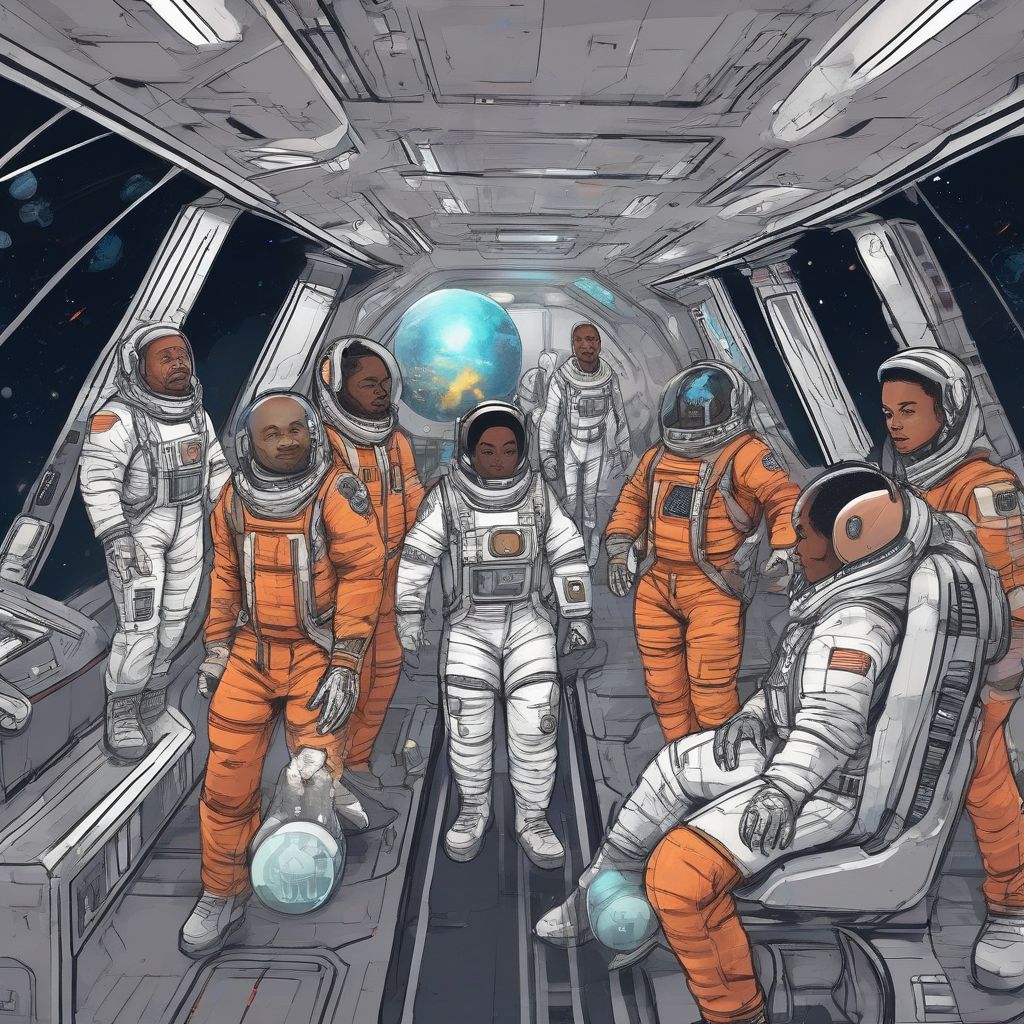Imagine a future painted solely in shades of beige – monotonous, predictable, and utterly lacking the vibrant tapestry of human experience. That’s what science fiction without diversity and representation looks like. Thankfully, the genre is evolving, pushing past the tired tropes and stereotypes to embrace a future that reflects the beautiful complexity of our world.
Why Diversity in Science Fiction Matters
Science fiction, at its core, is a genre of exploration – of new worlds, advanced technologies, and the boundless possibilities of the human spirit. But how can we truly explore the vastness of the unknown if our stories only reflect a narrow slice of humanity?
1. Reflecting Reality, Inspiring Creativity
Diversity isn’t just about checking boxes; it’s about reflecting the world we live in and the even more diverse world we aspire to create. When people from all walks of life see themselves in the stories they consume, it fosters a sense of belonging and empowers them to dream big.
- Breaking Down Barriers: Diverse representation dismantles harmful stereotypes and challenges our preconceived notions about gender, race, sexual orientation, disability, and beyond.
- Fueling Innovation: Different perspectives lead to new ideas, fresh narratives, and innovative solutions in storytelling. By embracing diversity, we unlock a wealth of creativity that enriches the genre as a whole.
2. Expanding Our Understanding of Humanity
Science fiction often grapples with complex themes like identity, social justice, and the human condition. By incorporating diverse voices, we gain a more nuanced and insightful understanding of these issues.
- Challenging Our Biases: Stories with diverse characters force us to confront our own biases and see the world through different lenses.
- Building Empathy: When we engage with narratives that center on marginalized experiences, we develop empathy and understanding for those who are different from us.
 Diverse Group of Space Explorers
Diverse Group of Space Explorers
3. Inspiring the Next Generation
Science fiction has the power to inspire future generations of scientists, artists, and dreamers. When young people see themselves reflected in these stories, it ignites their imaginations and encourages them to pursue their passions.
- Representation Matters: For children from underrepresented communities, seeing someone like themselves saving the galaxy or discovering new worlds can be a powerful and validating experience.
- Creating Role Models: Diverse representation in science fiction creates a new generation of role models who defy stereotypes and inspire young people to reach for the stars.
The Evolution of Diversity in Science Fiction
While science fiction has made significant strides in recent years, it’s important to acknowledge the genre’s problematic past. Early works often perpetuated harmful stereotypes, relegating women and minorities to secondary roles. However, a new wave of writers and creators is actively challenging these conventions, pushing for more inclusive and representative narratives.
From Tokenism to Authenticity
One of the biggest criticisms leveled at science fiction has been the issue of “tokenism” – including a single character from a marginalized group to give the illusion of diversity. Authentic representation goes beyond simply checking boxes; it involves crafting well-rounded characters with agency, depth, and unique perspectives.
A Growing Movement
Thankfully, the push for diversity in science fiction is gaining momentum.
- Emerging Voices: A new generation of writers from marginalized communities is bringing fresh perspectives and authentic voices to the genre.
- Fan Activism: Fans are becoming increasingly vocal about the need for greater representation, holding creators accountable and demanding better.
- Industry Recognition: Awards shows like the Hugos and the Nebulas are increasingly recognizing works that prioritize diversity and representation.
[amazon bestseller=”diverse science fiction”]
The Future of Science Fiction is Inclusive
The future of science fiction is bright – and diverse. As the genre continues to evolve, we can expect to see even more stories that reflect the richness and complexity of our world. This evolution benefits not only those who have been historically underrepresented but the genre as a whole, as it opens doors to new perspectives, innovative storytelling, and a more vibrant and engaging future for science fiction.
Conclusion: Embracing a Future of Imagination and Inclusion
Diversity and representation are not just buzzwords; they are essential elements of a thriving and relevant science fiction genre. By embracing inclusivity, we unlock the full potential of science fiction to inspire, challenge, and transport us to worlds beyond our wildest dreams – worlds where everyone has a seat at the table and a voice in shaping the future. Let’s continue to demand better, support diverse creators, and celebrate the stories that embrace the beautiful tapestry of human experience.
